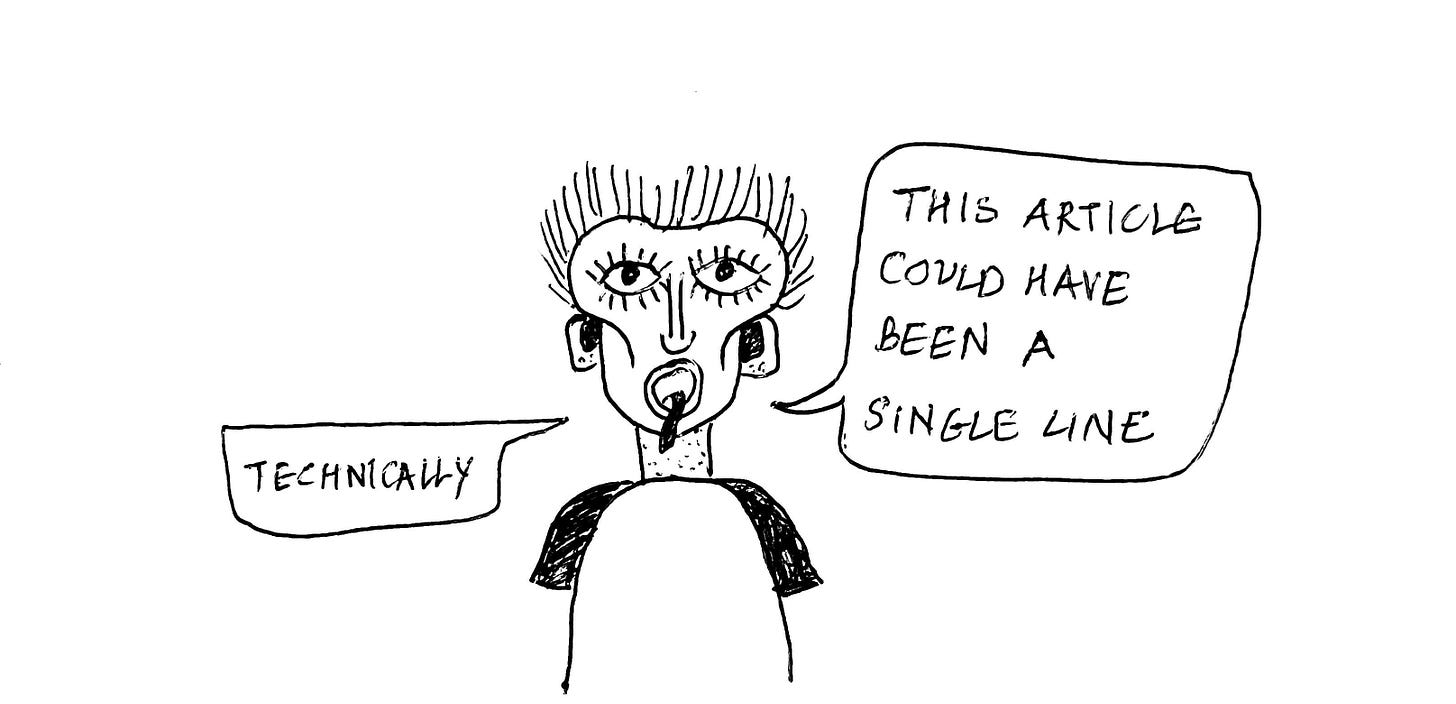How to talk to users and people in general
A small change that led me to have more meaningful conversations
Hi there,
Over the last couple of months, I have been interviewing many users at work. Coincidentally, I also moved to another country and crossed paths with a lot of new, interesting people—a rather overwhelming experience, to be honest. But something good came out of it… I learned to have more fulfilling conversations by changing just one simple thing.
The story goes something like this:
A few weeks ago at work, we were trying to understand some of the problems that our users faced while searching for stuff on our platform. We decided to schedule a bunch of product-discovery calls to get more insights into the situation.
On the first few calls, I introduced myself, set up the context and asked, “Are you facing issues with the search experience?” The user gave me either a “Yes, there have been a few instances…” or a “No, not really” as an answer.
My follow-up question was something along the lines of, “What are those issues? Can you expand on them?” Most users suggested a bunch of improvements and additional features that would help them.
This seemed like valuable information initially, but we were not looking for feature ideas (everybody already has a lot of those); we wanted to understand where the real problem was, and that information was still missing. We decided to step back and reflect more on what to do differently. The answer was simple: ask better questions.
We realized that if we asked generic questions, we’d invite generic answers. If we asked for problems, we’d invite a bunch of complaints. If we asked for what was missing, we would get feature requests. So we asked for stories…
“Bring me through the last time you were looking for something on our platform?”
“What were you looking for?”
“Why did you need it?”
“Were you able to find it?”
“Can you try to remember what was the most time-consuming part?”
The users spit out beautiful stories about their workflow and reveal the areas they usually get stuck in. The answers weren’t vague and had context attached to them. Not only did we discover many opportunities, but we could also advocate for the users inside the organization by communicating those stories.
We’ve all heard a lot about the importance of storytelling. But imagine using storytelling to be a good listener and get the most out of your interactions with other people.
You can understand not only your users better but also your friends and family just by framing your questions more consciously and putting in the effort to listen to the story they are living. Stories make it easier for us to understand and empathize with people no matter which walks of life they come from. Besides, stories are also easier to remember :)
When in conversation with users or people, ask for stories, not answers. And that’s it; that’s the sauce.



Liked the experiential tone of the post. Flows seamlessly from your experience to your realisation to final solidification of your learning. This post makes me realise why companies focus on the term "customer-stories". Also, love the fact that the post is itself the answer to a question in the form of a story.
it's wonderful, thank you for sharing the story with us 🙌🏻